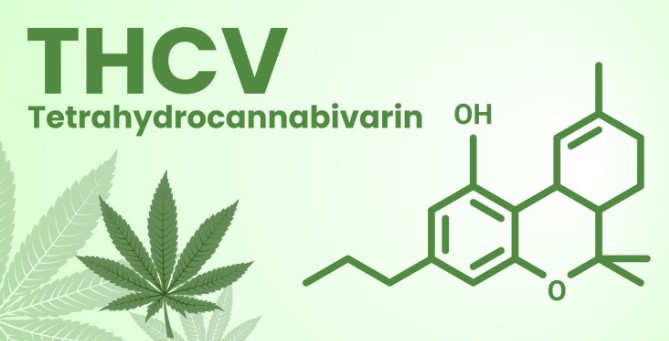Cannabis has many different cannabinoids that provide various effects, each with unique benefits. While THC and THCV have similar chemical structures, they interact differently with the body’s endocannabinoid system (ECS).
THCV has received more attention than most because of its unique properties. Here are a few reasons why you should try it.
It’s Non-Psychoactive
What is THCV? Tetrahydrocannabinovarin, or THCv, is the cannabis plant’s version of THC, and it has become increasingly popular due to its unique effects. THCv works with the human body’s endocannabinoid system receptors, interacting with CB1 as an antagonist to produce psychoactive effects and CB2 to produce anti-anxiety and pain relief.
THCV has also reduced insulin resistance, causing the body to process glucose more effectively and lose weight. THCv can also be an effective antipsychotic, lowering the activity of specific brain cells that contribute to paranoia and delusions.
More research is needed, but THCV shows promise as a non-psychoactive cannabinoid with many potential therapeutic benefits. If you’re interested in trying THCV, look for strains like Daytime Guava from Pabst Labs, which contains 10mg THC alongside 5mg THCV to boost energy and mood without the sedation or munchies. Always start with a low dose and speak to your doctor before adding new supplements or cannabinoids.
It’s Non-Intoxicating
While THC is the most well-known cannabinoid to get people high, THCV is another that can produce some therapeutic effects. Unlike THC, THCV is non-intoxicating at low doses. This is an excellent feature for patients looking to treat various symptoms without feeling high. Many who use THCV report that it helps with fatigue and irritable bowel syndrome and even helps them focus at work or school.
It’s important to note that THCV is biphasic, meaning that it has different effects at various doses. It can act as a CB1 receptor antagonist at low doses and switch to working as a CB1 agonist at higher doses. This is why it’s essential to start with a small amount and see how you react. At lower doses, THCV can help with appetite suppression, improve insulin sensitivity, and suppress the actions of certain neurotransmitters. It can also stimulate bone growth, which could help treat osteoporosis.
It’s Non-Stimulating
Tetrahydrocannabivarin (THCV) has been around for a while, but recently it’s started gaining popularity thanks to its clear-headed, focused, and relaxed effects. THCV is found in hemp and cannabis plants and can be consumed in the plant as a whole or extracted into an isolate.
One big reason THCV is attracting attention is its appetite-suppressant effects. It’s also been suggested that it can help with weight loss by encouraging the body to burn fat and boost metabolism.
However, there’s a lot of confusion surrounding these claims because THCV isn’t studied as much as other cannabinoids. This can lead to overenthusiastic claims from some brands that might not have evidence, so be wary of products with unsubstantiated THCV weight loss claims. Strains are high in THCV and can provide the desired effect if you’re looking for appetite-suppressing pressure. They’re available in select locations where adult-use marijuana is legal.
It’s Non-Sensitizing
Unlike THC, which is responsible for the psychotropic effects of cannabis, THCV does not induce intoxication in large doses. Instead, it offers many therapeutic benefits, including appetite suppression, improved insulin sensitivity, and reduced anxiety and paranoia.
Research on THCV is limited, but early studies suggest it may have neuroprotective properties and help treat anxiety disorders. Additionally, THCV’s ability to block CB1 receptors, which stimulate hunger, makes it an effective appetite suppressant. Furthermore, a study in 2020 found that THCV can increase glucose metabolism and improve glycemic control in patients with type 2 diabetes.
Because of its unique qualities, THCV has received a lot of hype in the legal marijuana market. As a result, strains are growing in popularity among cannabis consumers. However, it’s important to note that THCV has a biphasic effect, meaning that something beneficial at low doses may have the opposite effect at higher doses.

